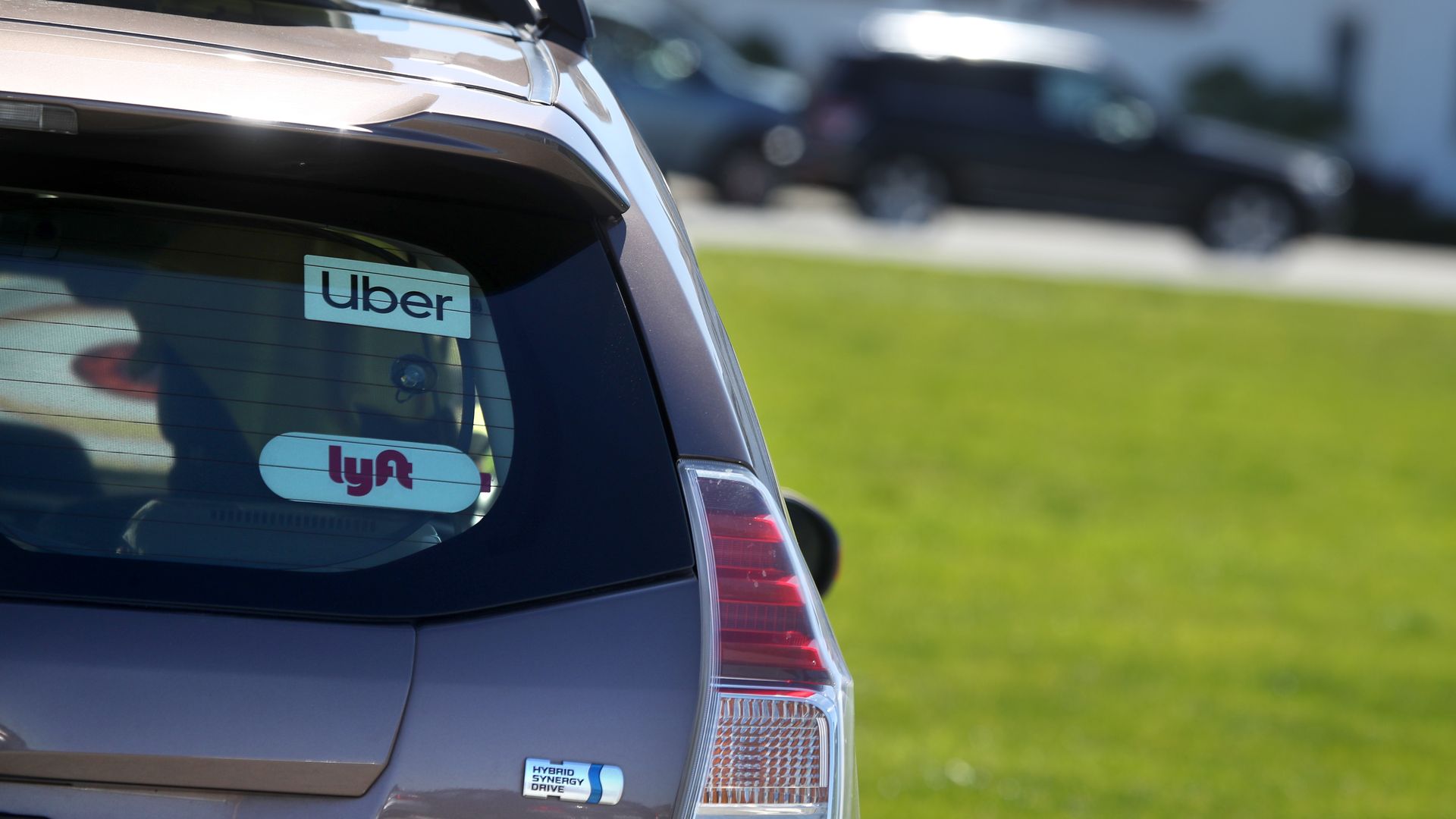Lyft exec: California bill would radically change ride-hailing
Add Axios as your preferred source to
see more of our stories on Google.

Photo: Justin Sullivan/Getty Images
Uber, Lyft and others are fighting hard against a California bill that would force them to classify drivers as full employees.
What they're saying: In Lyft's case, if the bill becomes law as is, the company would have to shift to a smaller pool of full-time drivers, Lyft president John Zimmer said on Tuesday at the Deutsche Bank Technology Conference in Las Vegas.
- "You would manage a smaller population of drivers, so you would have less on-boarding costs, less background [check] costs, and you would be able to have more control over the hours and duration that someone works for you," Zimmer said.
- He emphasized that 91% of Lyft drivers drive less than 20 hours per week for the company, which means the company would "only get a certain type of workers" who would fit this more strictly defined job.
Between the lines: In short, Lyft is telling advocates for the bill: Be careful what you wish for — the result may work out for some drivers, but it won't end well for others. Uber, Lyft, and other gig-economy companies have long responded to criticism by arguing that their workers say "flexibility" is the most important attribute of the job.
Yes, but: Zimmer said this scenario is the least likely one. Instead, he believes it's more likely that either Lyft and its peers will strike a deal with California's government over the next several months, or they will prevail in a state ballot measure challenging the bill.
What's next: The California State Assembly has already approved the bill, AB5, and the Senate is expected to hold a final vote by the end of this week. If it passes, it will head to the governor's desk.
